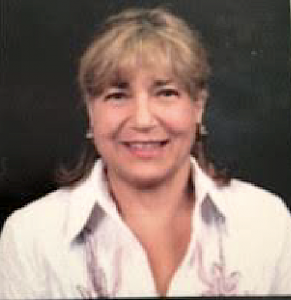• A GUIDE TO FAMILY DYNAMICS •
Welcome to DOLIF Psychology
DOLIF, the Distribution Of Love In Families, refers to the way parents Distribute their precious LOVE among their children. After nearly 50 years of study through four generations
VERA RABIE
Doctor of Psychology
discovered that adults think and act Intellectually but children think and act Emotionally using their Mind of a Child.
By tracking child-centered thinking, Vera Rabie, D.Psy. found that we must understand the Mind of a Child if we are to raise mentally healthy children. She uncovered a hidden economy of LOVE that is the center of a child’s world, but makes little sense to adults. That is, if you ask your child “WHY are you acting up and being so annoying?”, from their Emotion-bound Mind of a Child their answer is
I’m upset because YOU LOVE MY
BROTHER/SISTER MORE THAN ME!
(image of angry child)
Here’s the explanation. Every child instinctively competes with their next born sibling for MORE PARENTAL LOVE. We see this every day but dismiss it as “normal” sibling rivalry. However children are at all times preoccupied with SIBLING RIVALRY over parental LOVE. Unaware of this, parents inevitably direct MORE LOVE or FAVOR at the sibling who shows positive social behavior. This creates a dynamic of FAVORITISM where the less well-behaved child receives comparatively LESS LOVE or DISFAVOR. But because a child cannot distinguish between good and bad behavior, adults need to know that both the good and bad child are acting the way they do because they are each seeking MORE PARENTAL LOVE than their rival sibling!
********image of children fighting********
So how should parents DISTRIBUTE their precious LOVE for the best results in their children’s behavior?
DOLIF rejects the idea that humans, like animals, respond to discipline, and introduces the idea that humans respond to LOVE. So DOLIF recommends that parents change their attitude by reversing Favoritism and SHOWING MORE LOVE TOWARD THEIR BADLY BEHAVED CHILD!
This shift in parental attitudes inevitably achieves dramatic improvement in a difficult child’s behavior, proof that DOLIF theory is correct. It shows that parents’ attitudes and NOT the child’s genes, naughtiness or stubbornness were the critical factors that led to the child’s undesirable behavior.
The author’s nearly 50 years of research shows that insufficiency of PARENTAL LOVE or Disfavored status compared with a next-born sibling continues into adult life. It is the reason behind the polarity we see in the personalities and behavior of next-born siblings, as well as most psychological and social problems such as mental illness, substance abuse and criminality.
*To read more, see the four phases of DOLIF THEORY.
*Also refer to the Blogs for real-life case studies of treatment and solutions using the DOLIF method.

ABOUT VERA RABIE, DOCTOR OF PSYCHOLOGY
I obtained my BA at McGill University, and Doctor of Psychology from the University of Montreal. I later worked in long and short term mental health settings, adult corrections, youth corrections, education, employee assistance and private practice.
LATEST POSTS
Parental Jealousy – Father and Son
Here are two examples of problems between fathers and sons. In both cases the son felt forced to leave the family home before they were ready because of jealousy from their father. In the first case a woman came into…
A Woman Who Wanted to Protect Her Father
A Woman Who Wanted to Protect Her Father A young woman of 27 years came in and informed me that she was very depressed. She had taken leave from work and spent three weeks as an in-patient at a hospital….
